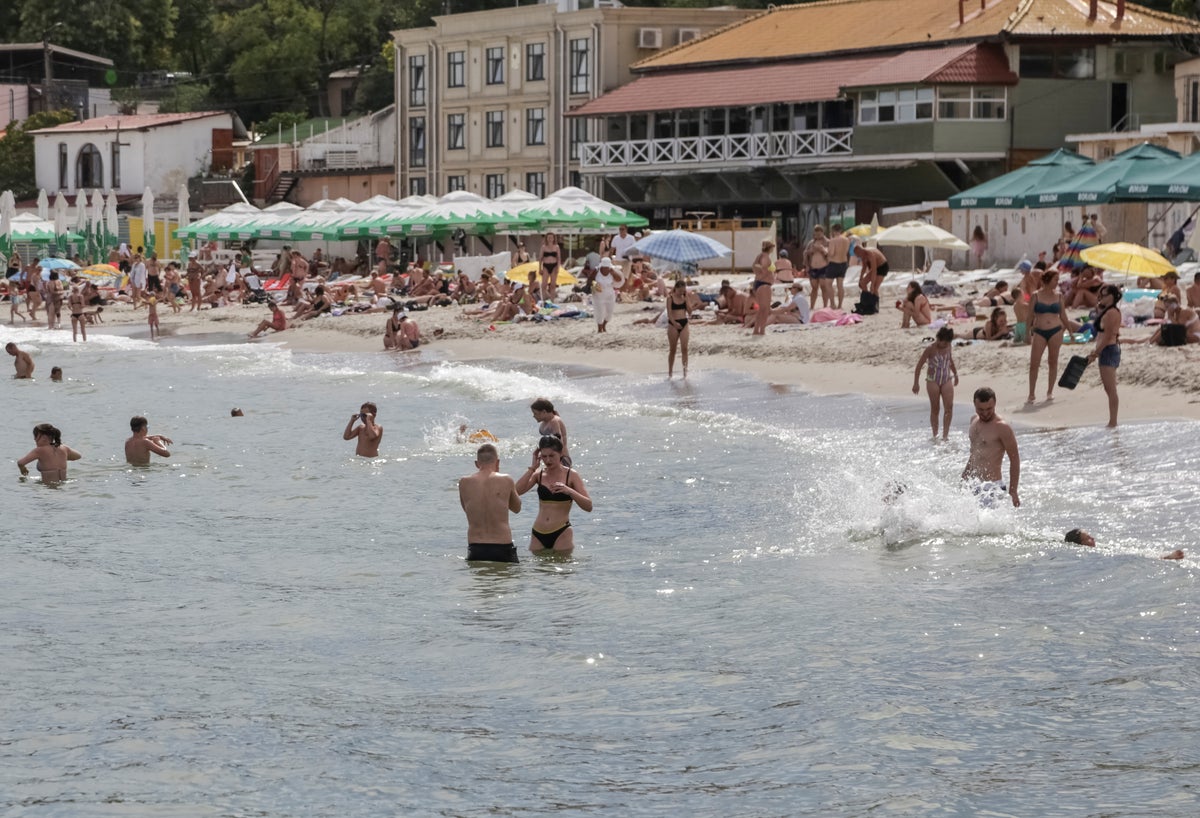
Russian mines are washing up on busy Black Sea tourist beaches, frequently exploding, and sometimes even killing holidaymakers.
As recently as Monday, a Russian mine exploded in the Romanian Black Sea resort of Costinesti, although it caused no injuries or damage, according to local reports. Meanwhile, another mine was also discovered in the water there.
“It is believed that a Russian sea mine exploded,” said the spokesman of the Romanian Navy, Colonel Corneliu Pavel, Sofia News Agency reported. “These sea mines are a danger not only to shipping but also to shore-based activities.”
People relax at a Black Sea beach that was reopened after being closed down last year following sea mines laid around the ports of Odesa and Mykolaiv by Russia and Ukraine— (REUTERS)
A witness told Digi24 of a “loud explosion” and “a lot of black smoke”. The tourist said: “There was a loud explosion. I was on a terrace, I saw a lot of black smoke. We were told something had exploded. The police and the fire department are here. Some tourists are still in the water.”
Navy divers scrambled to dismantle the mine, with the navy chief reporting divers have had to neutralise five sea mines in Romania since Ukraine was invaded in February 2022.
Meanwhile, several beach-goers have died after accidentally setting off mines in Odesa.
As Ukraine’s largest port and naval base, the city has been repeatedly attacked with missiles and drones and the sea is littered with hundreds of sea mines.
Moscow’s forces laid the mines around the port to stop grain exports, while some were planted by Kyiv’s troops in an effort to prevent a Russian amphibious attack early in the war.
Odesa was even forced to close its beaches last year for the safety of residents after mines were washing ashore and exploding.
Oleksandr, a lifeguard and a former diver who gave only his first name, said that an anti-mine net was placed in between two piers to prevent swimmers encountering shallow-water mines.
“The net will stop them. And they (mines) will also be visible from the shore under such weather conditions. Emergency workers will be notified, they will come to handle it,” he said.
The opening of the beaches has been a welcome respite from the war for people swimming and sunbathing.
“I have been dreaming of going to the beach and inhaling salty air. We have been missing it a lot. But safety is a top priority,” said Svitlana, a resident of the Odesa region.
Darya Vorobyova, 28, had made a rare trip to the beach on Sunday, with her daughter, Ulyana, eight, telling The Times: “We heard the beaches were open and we came straight away.”
The eight-year-old could not remember the last time she had been swimming even though the family lived moments from the sea. Braving the mines, Ms Vorobyova said the visit offered a brief respite from the war, saying of her daughter: “She can mostly sleep through the missile strikes now but sometimes she still wakes up shaking.
“That’s when I think about leaving.”






